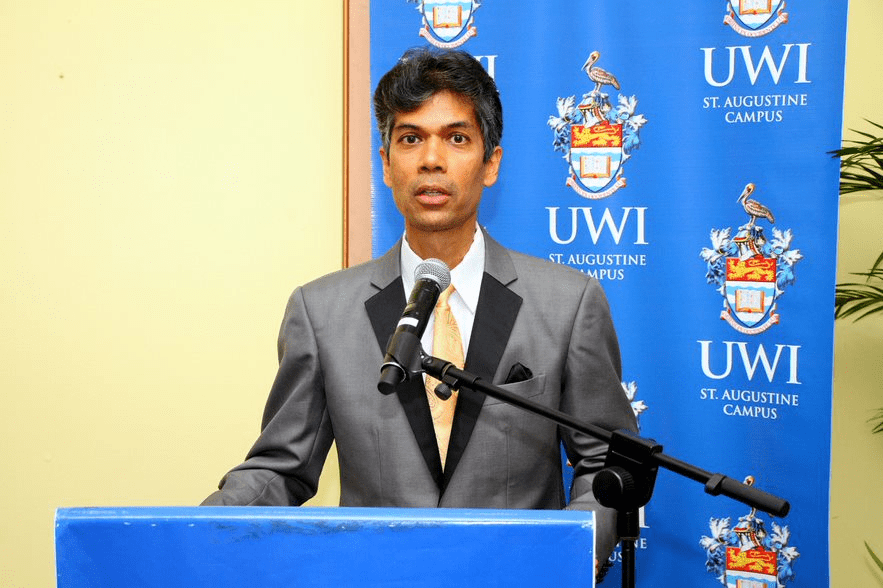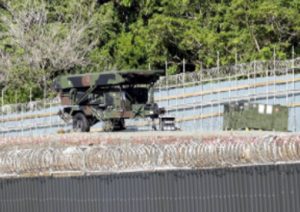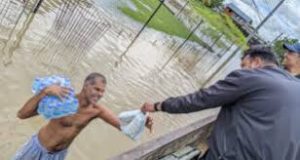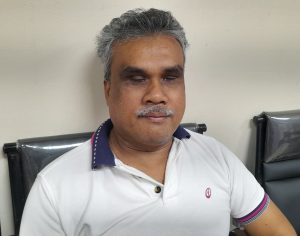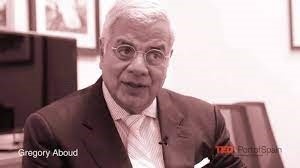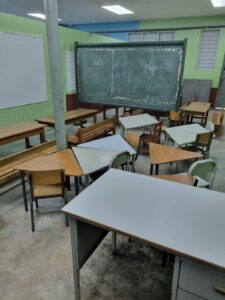Caption: Dr Jerome Teelucksingh
By Sue-Ann Wayow
WHEN making public statements especially about international affairs, organisations must take men and boys into consideration.
Founder of International Men’s Day Dr Jerome Teelucksingh said too often, focus was placed on women and children when sometimes men find themselves in more vulnerable situations than women.
Dr Teelucksingh spoke with AZP News on Tuesday and made reference to a statement published by CARICOM on June 21.
The statement entitled, “CARICOM Council for Foreign and Community Relations (COFCOR) | Ongoing Situation in Gaza and the Middle East,” speaks about CARICOM’s concern for the ongoing war which is threatening global stability.
He said men and women initially contacted him voicing concerns about the statement which he then read.
Dr Teelucksingh, however, said the statement was biased in particular a sentence in the statement which reads, “The COFCOR deplores the immense suffering and tragic loss of civilian lives, especially women and children, in Gaza, with more deaths every day and a continued inability to access food and humanitarian assistance.”
The statement he said, gives the impression that men were probably safe and protected as well as men were also responsible for the war, “which is true” he admitted but it painted men in a negative light.
“They (CARICOM) need to mention men and boys if they are talking about women and children.”
Dr Teelucksingh, also a history lecturer at the University of the West Indies said the bias was not just for CARICOM statements but was also noticeable from the United Nations, foreign leaders and organisations.
“CARICOM is reflecting a bias what I am seeing internationally,” he said.
He is advising the present CARICOM Council to be different and not just regurgitate statement styles particularly the UN’s.
“I would like to see in the future that this council issue more balanced gender sensitive statements to ensure that we have peace and stability not just in the Middle East but also in Ukraine and other areas of conflict.”
He further said CARICOM should not just offer statements but proactive action and aid in such situations.
Back on the topic of the inclusion of men and boys, Dr Teelucksingh said, “We need to include men and boys in that space. We need to see them as vulnerable as women and children. In some instances, they are even more vulnerable.”
He gave an example of a hospital where mostly men might be being bombed or an air base where very little women might be based.
“When you look at some of these refugee camps, it’s men trying to keep the family together. It’s the men who are breadwinners. They still have that burden of breadwinners though they have no job and no home. They are part of the victims of war.”
And, Dr Teelucksingh also gave an example of murder.
“When you look at the murder scene, a lot of times when women are victims of domestic violence or they are murdered by a partner or husband you would hear a minister coming out or an NGO talking about, ‘you need to protect women and children’ but to protect them, we also have to deal with the mental health of the men,” he said.
Dr Teelucksingh added, “What I have been trying to tell some people is that you cannot solve the equation by dealing with one issue. This equation has to be dealt with in a holistic manner. To achieve the solution of peace, both sides of the equation have to be addressed.”
![]()


